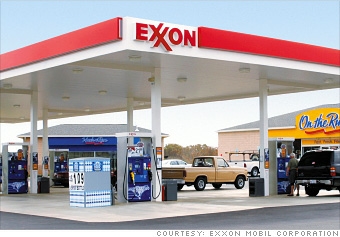Exxon Refuses to Add Sexual Orientation to Anti-Discrimination Policy
 Although 88% of U.S. Fortune 500 companies ban discrimination on the basis of sexual orientation in the workplace, Exxon Mobil is not one of them. This is not a required federal policy but one that most large employers have added to their anti-discrimination policies. For the 14th year in a row, however, Exxon Mobil has denied a shareholder proposal to do so. The company has, of course, included such policies and provided same-sex benefits in countries where it's required, but the restriction in the United States is intentional-and has raised more than a few eyebrows.
Although 88% of U.S. Fortune 500 companies ban discrimination on the basis of sexual orientation in the workplace, Exxon Mobil is not one of them. This is not a required federal policy but one that most large employers have added to their anti-discrimination policies. For the 14th year in a row, however, Exxon Mobil has denied a shareholder proposal to do so. The company has, of course, included such policies and provided same-sex benefits in countries where it's required, but the restriction in the United States is intentional-and has raised more than a few eyebrows.
The move is surprising, particularly considering the increasing national acceptance of same-sex marriage; Don't Ask, Don't Tell laws for the military; and, this week, the Boy Scout's dismissal of a ban on gay scouts.
The company's decision may hurt business and their recruiting efforts. When the company's new head of human resources met with a group recently and asked, "What's your opinion of Exxon Mobil?" one representative said, "Every single person said the equivalent of, 'I'd walk 20 miles in a blizzard to find another gas station if I'd run out of gas. We'd never spend a dime at Exxon Mobil.'" Also, Exxon Mobil may be at a disadvantage when hiring talent. Would a gay or lesbian work for a company with this history?
The company's position is that a policy against all forms of discrimination already exists, and sexual orientation is mentioned on the web site. But, for many people, this is not enough.
Discussion Starters:
- Exxon Mobil says this is a board of directors decision. What do you think are the deliberations of the board? What are the considerations for and against including sexual orientation, specifically, in an anti-discrimination policy?
- How, if at all, does this news affect your view of Exxon Mobil? Does it affect your buying decisions?